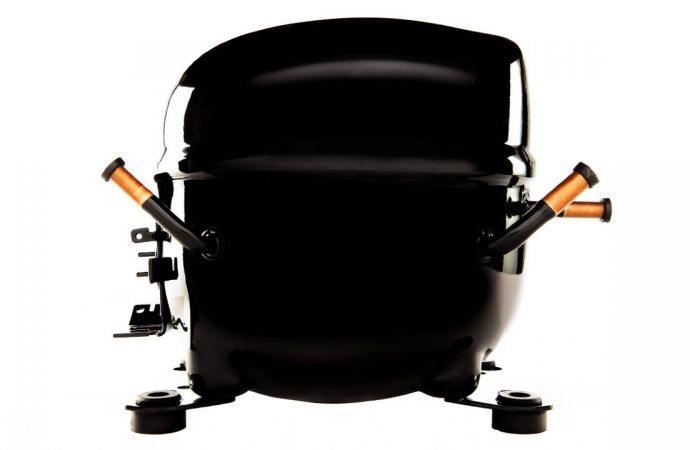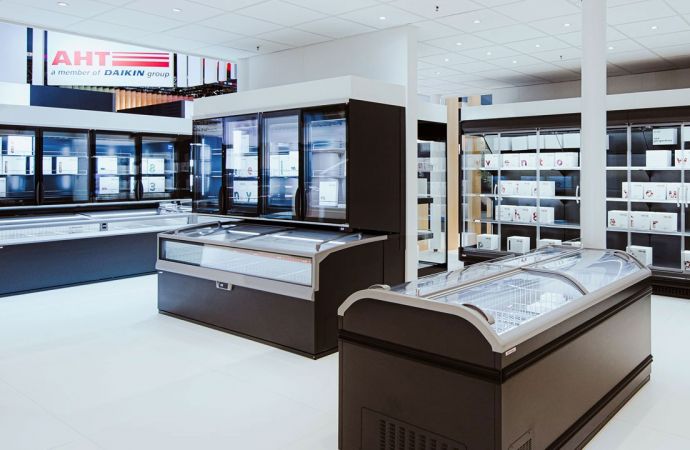Supermarkets are using chillers with self-contained units in ‘propane-propane’ configuration.

Display of Copeland compressor for propane chiller at Chillventa 2016.
Propane (R290) chillers, working with a secondary fluid like glycol or CO2, are growing in popularity in Europe for applications such as medium-temperature supermarket display cases and commercial air conditioning, according to an Emerson Climate Technologies executive.
“I’m seeing a whole bunch of propane products for commercial and residential use in Europe,” said Dr Frank Rinne, director of application engineering for Emerson Climate Technologies’ office in Aachen, Germany, at Emerson's booth at Chillventa 2016.
On the residential side, he said that propane is being used in heat pumps located outside a building and circulating warm water inside.
On the commercial side, supermarkets like Waitrose in the U.K. and Colruyt in Belgium are employing propane chillers with glycol or CO2 for medium-temperature display cases, and self-contained propane freezer cases. Emerson supplies Copeland scroll compressors for these systems.
The medium-temperature and low-temperature systems can be linked, he noted, by cascading the condenser heat from the low-temperature system via a heat exchanger into the compressor of the medium-temperature unit. Rinne called this a “propane-propane cascade system.”
I’m seeing a whole bunch of propane products for commercial and residential use in Europe.”
– Dr. Frank Rinne, Emerson Climate Technologies
For the propane chiller, there is no charge limit in Europe if the propane is confined to outside the building or to a machine room. Individual self-contained cases have a charge limit of 150 g, and a total charge limit of 1.5 kg “if the room is big enough,” said Rinne.
If a case has more than 150 g, then a risk assessment can be done by independent consultants to show that the case is safe in a particular store location in the event of a leak, he noted. The local workplace safety authority would have to approve the assessment.
Related stories




